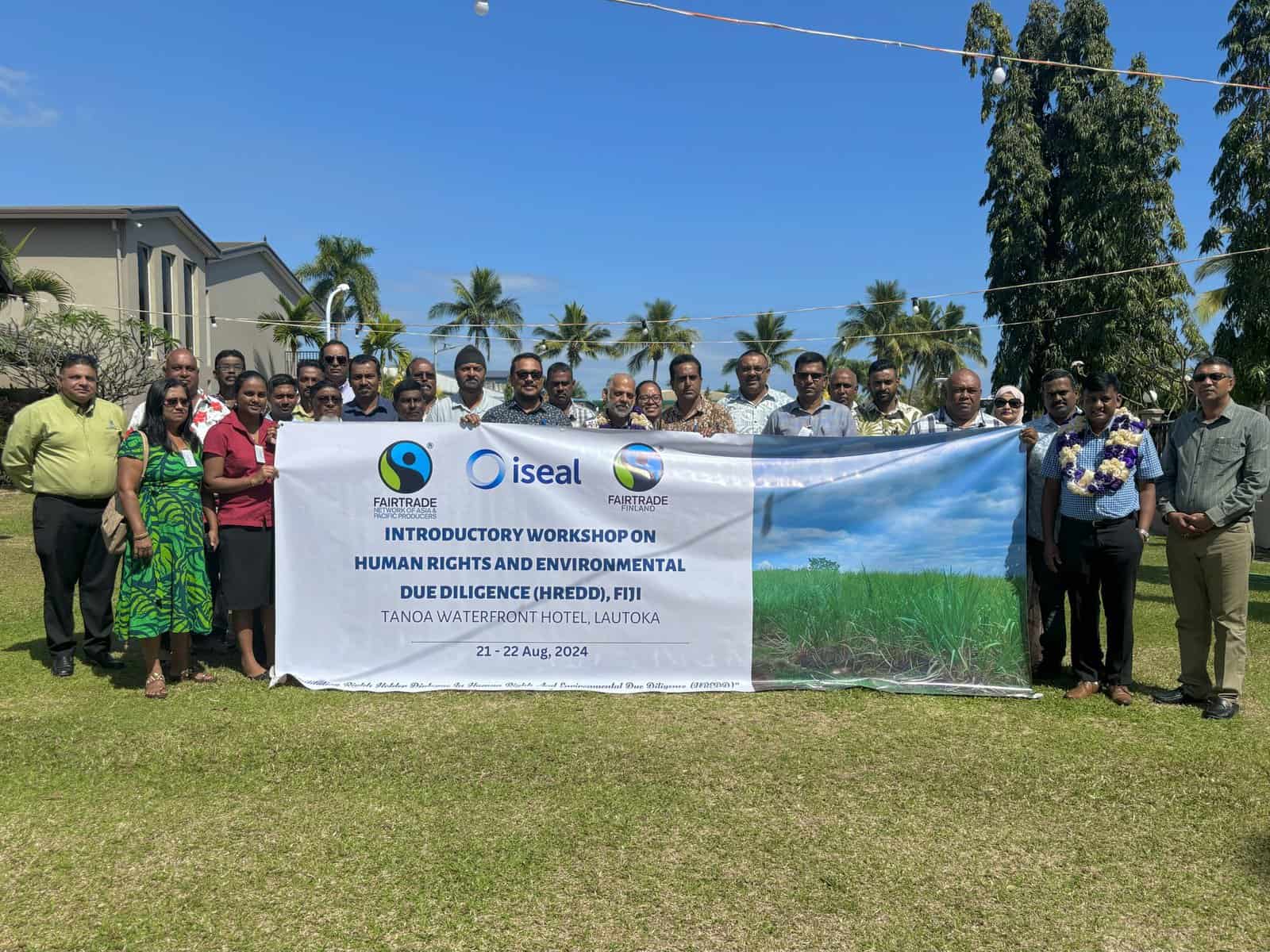A balancing act between global standards and local realities
Fair trade practices in Fiji are under increasing scrutiny as new international regulations push producers to meet stringent environmental and human rights standards.
At a recent workshop on Human Rights and Environmental Due Diligence (HREDD) in Lautoka, experts and stakeholders discussed the implications of these changes, particularly their impact on farmers and producers in developing countries.
The two-day workshop focused on the challenges posed by new European Union regulations, specifically for developing nations in the Asia-Pacific region.
Now facing mandatory compliance with international laws like the European Union’s Deforestation-Free Products Regulation (EUDR) and the upcoming Corporate Sustainability Due Diligence Directive (CSDDD), producers worldwide are bracing for significant changes.
“The concern for the environment is something that is not new to us in some way or another. We are actually born with that,” said Raj Bushan Roy, project manager for HREDD, emphasising the fair-trade movement’s longstanding commitment to environmental stewardship.
However, he pointed out that the new regulations are testing this commitment.
The EUDR, effective since June 2023, mandates that products linked to deforestation must comply by the end of next year.
“This regulation is troubling a lot of producers because the deadline for this is December 2025,” Roy explained.
The CSDDD, expected to be enacted in April 2025, will extend beyond deforestation, addressing broader human rights and environmental concerns like ocean health and biodiversity.
Challenges for developing countries
The new regulations present significant challenges for producers in developing countries, where socio-economic factors make compliance difficult.
Roy shared his experience working in India, where he witnessed first-hand the impact of environmental and human rights issues on local communities.
“We are one of the most polluted cities, Delhi. The wind doesn’t flow from Delhi to anywhere, so the pollution just accumulates,” he said, referring to the severe air pollution caused by agricultural practices like burning crop stubble.
The discussion also touched on the issue of child labour in the mica mining industry, a stark example of the challenges in developing countries.
Roy, who has extensive experience working on human rights issues in India, pointed out that while international laws define child labour uniformly, local realities often complicate the situation.
“In countries like India, child labour is defined uniformly under international law, but we must also consider the cultural and economic realities,” he said.
“In my experience, I picked up dead bodies in three pieces. The world started saying that we don’t want mica from India unless you clear the supply chain,” he recalled, illustrating the intense international pressure to address child labour and improve working conditions.
Roy also elaborated on the difficult choices facing families in impoverished regions.
“Yes, a 16-year-old helping on a family farm might technically be considered child labour, but it’s also a matter of survival for many families,” he explained.
He argued for a more nuanced approach to child labor in the Asia-Pacific region.
Fiji’s take on child labour
Fijian Minister for Employment, Productivity, and Workplace Relations, Agni Deo Singh, provided insights into Fiji’s approach to child labour, which balances the protection of children with the support of family livelihoods.
He noted that Fiji’s laws allow children over 14 to engage in certain jobs that do not affect their health, development, or education.
However, according to Minister Singh, the government is firm on prohibiting hazardous work for children.
Minister Singh stated, “There is something known as light work.”
“We allow children over 14 to engage in light work, which does not affect their health, development, or education.” However, we prohibit heavy work, such as handling chemicals or harvesting, as it could potentially harm the child’s well-being.
The Minister acknowledged that in agricultural communities, labour shortages often push families to involve their children in farm work.
“Farmers here are sometimes at the mercy of labourers, and they might engage their children to help out on weekends or during peak seasons,” he explained.
“But we must ensure that this does not cross the line into hazardous labour.”
The road ahead
The workshop also highlighted the specific challenges faced by producers in developing countries as they strive to comply with international standards, with a broader consensus on the need for a balanced approach to fair trade and child labour.
Both Roy and Minister Singh emphasised the importance of ongoing dialogue between all stakeholders—producers, businesses, governments, and international organisations.
